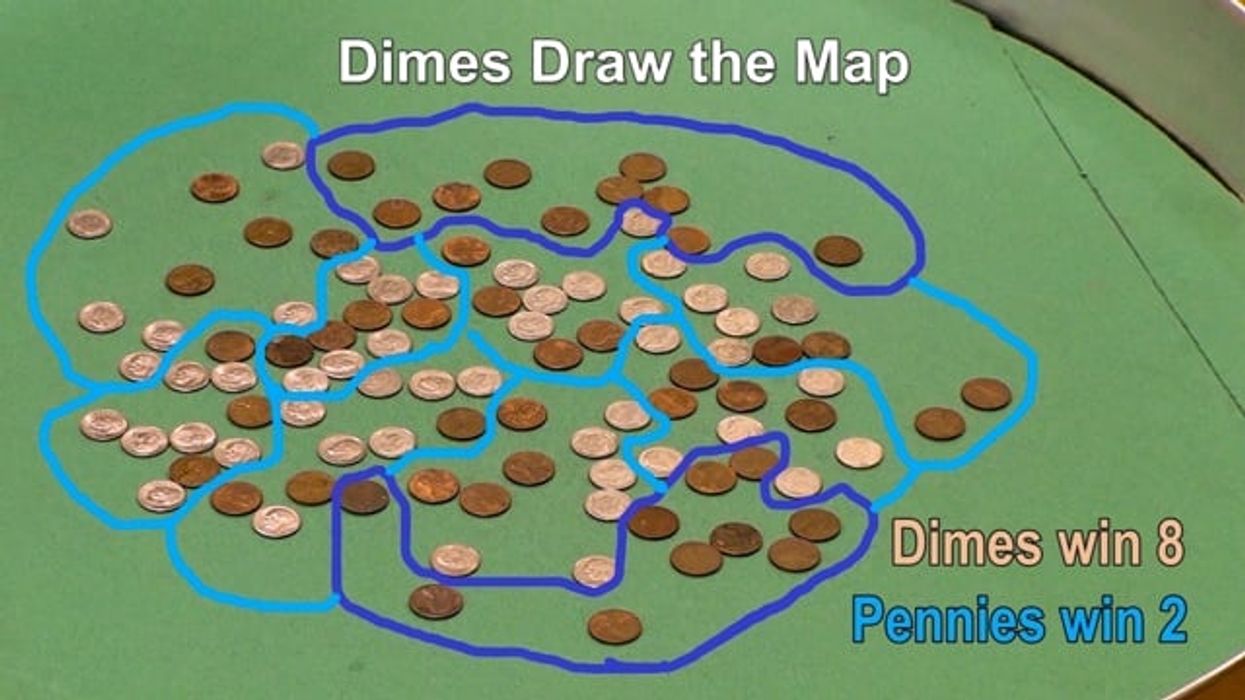Millman produced and directed "Line in the Street," a 2018 documentary about partisan gerrymandering in Pennsylvania.
As we get closer to Election Day, we hear a lot about our political divide — the unbridgeable tribalism of left and right. At the same time, we're also told that voters hold common ground views on a variety of issues. How can both be true?
The answer lies in partisan gerrymandering, a funny name for a system that enables state political bosses to choose their voters, and essentially ignore what the electorate wants.
The general view is that gerrymandering advantages one political party over the other. But that misses the larger point. True representative democracy is a competition among ideas that live or die at the ballot box.
There is no such competition if the outcome is already decided by rigged district maps. There are no fresh ideas if the first requirement is party loyalty. There's no room for independent or third-party candidates if maps are drawn so all seats are safe seats.
Another misconception is that gerrymandering affects only some races. But ballot access and the right to vote are controlled by state legislatures. That affects every election at every level.
Gerrymandered districts are the keystone of an interlocking structure for maintaining political power: The party that draws the maps makes the rules, appoints people to chair legislative committees and enacts campaign finance laws — much of all that in secrecy, eventually wearying voters to the point where they no longer see the value of participating in elections over which they don't sense they'll have much say anyway.
But in this careful scheme something elemental, and in plain sight, is overlooked: your state constitution.
State constitutions are where you find the individual right to vote, along with your individual right to equal protection of the law.
This state-based argument is no longer an academic discussion. In the landmark 2018 case League of Women Voters v. Pennsylvania, the Pennsylvania Supreme Court ruled that the congressional lines in effect at the time amounted to such an excessive partisan gerrymander that they "clearly, plainly and palpably violate" the state Constitution.
The court had told the Legislature to draw new lines for the 18 districts — with the splitting up of neighborhoods kept to a minimum. "Do not divide any county, city, incorporated town, borough, township or ward, except where necessary to ensure equality of population," the justices ordered.
The map that was struck down, drawn by Republicans in charge in Harrisburg at the start of the decade, had worked as designed and produced 13 Republican and five Democratic members of the House in three straight elections. The map used in the 2018 midterm resulted in a congressional delegation with nine members of each party — neatly reflecting the state's evenly split electorate.
Moreover, the Pennsylvania case was used as a template for a similar and successful challenge last year to the partisan gerrymandering by the GOP-run General Assembly of both the state legislative and congressional maps of North Carolina. New ones are being used this fall.
These outcomes are based on a simple truth found in all 50 state constitutions: The people have an individual right to vote, and a right to equal protection of the law. This is the basis of representative democracy, and the opposite of what gerrymandering does.
The ruling infuriated Pennsylvania's legislative majority, which has now embarked on a fresh gerrymandering crusade — this time to carve up judicial voting districts.
State legislators in Pennsylvania, and all other states, swear an oath to uphold their own state constitution. It is our job to remind them of their duty.



















Trump & Hegseth gave Mark Kelly a huge 2028 gift